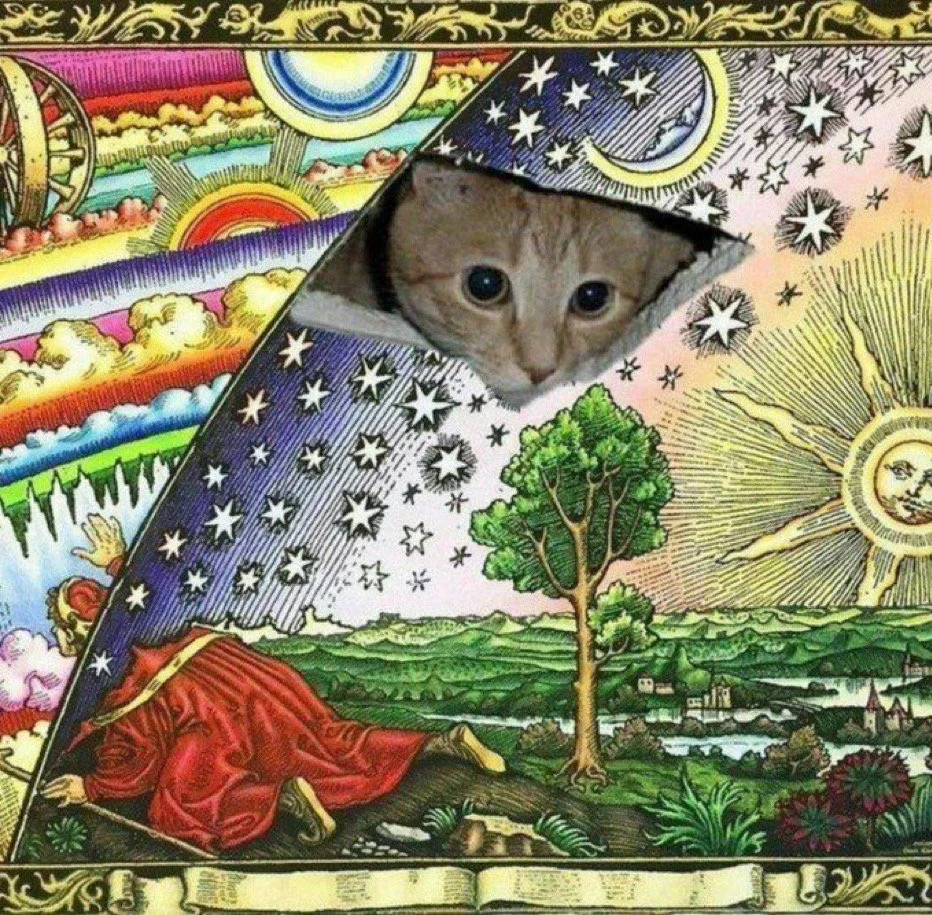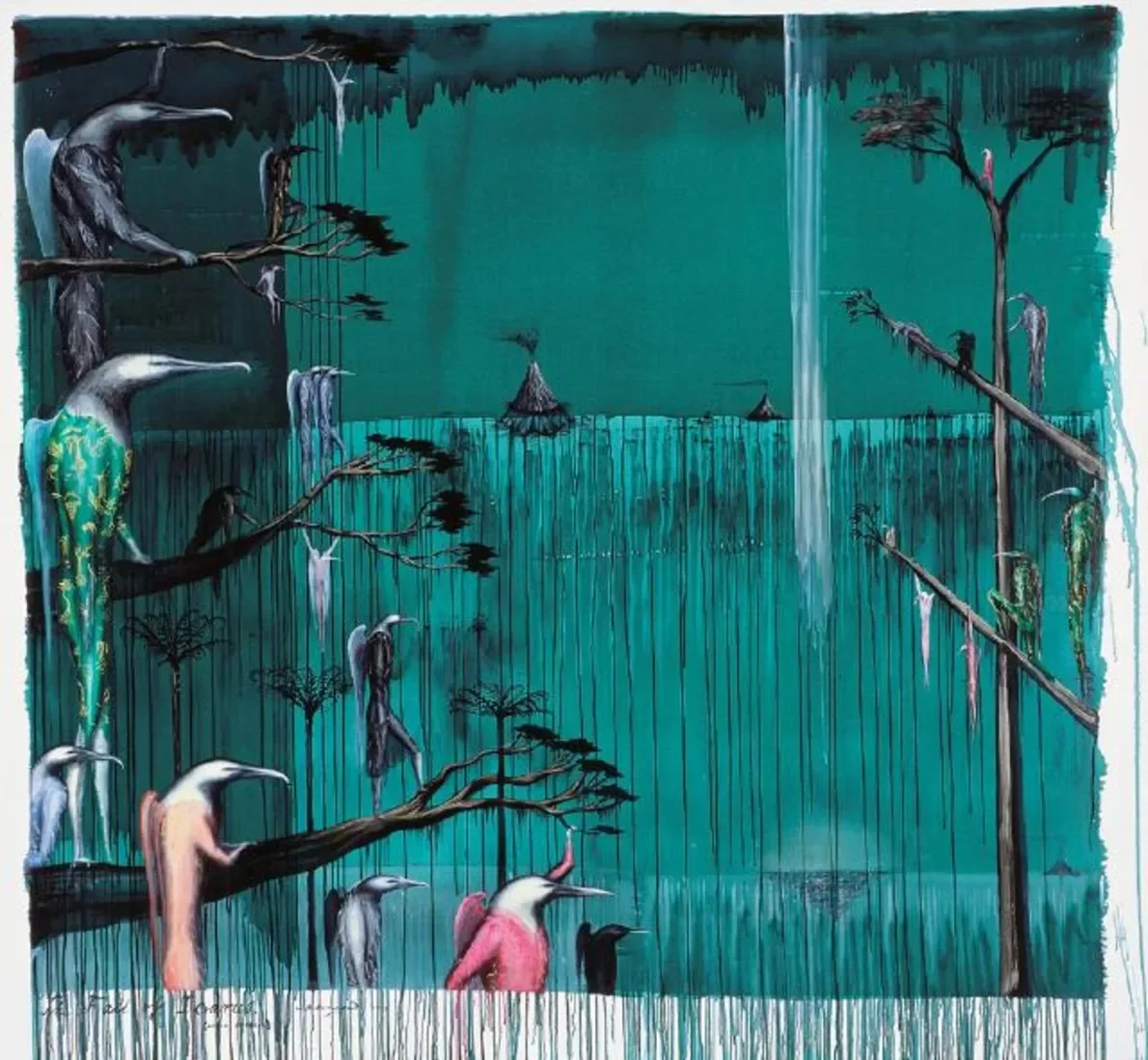
Wild Cards
Learn to read tarot like a beast with Christopher Marmolejo
7-week intensive
Dates TBA
Live on Zoom, or watch asynchronously
Sliding scale from $780
Tarot Untamed
Where exactly does civilization end and the wild begin? In a constant environmental unraveling, it’s impossible to discern.
In this class we will journey from bewilderment to chaos. We will realize wildness is not limited to the natural world. These Wild Cards will tie together aesthetics, anticolonial theory, subjugated knowledge, and desire.
Conjure other worlds where the wild comes to us in an animal divination.
The wild other has a long colonial history. We will be working with the spiritual tool that is tarot to work against the colonial fantasies that persist in the spiritual tourism that Europeans and North Americans so eagerly engage. Fascinated with the wildness these brown beings have been made to signify: the magical, enigmatic, healing power that could cure the existential malaise of their Euro-American cultural values, these encounters are endlessly extractive.
Wildness is in the in-between of colonial terror and representation. But where else can we theorize the wild, can we find places that aren’t prescribed by a colonial order? José Esteban Muñoz thought of these as the “brown undercommons,” which like tarot, has a haptic order.
Wild Cards gives meaning to bodies and beings in space and time as much through analogy and vast theoretical sources as through the touch of the cards that are shuffled and arrayed on the the table randomly. We will stage a new wild encounter. We will be birds murmuring together, the many who remain many and become, in their multiplicity, a new entity entirely.
What you’ll learn
We will approach these images from perspectives beyond the lenses of alienating taxonomy. We will summon the spirit of the unknown and the disorderly to disrupt convention. We will be held in a warm embrace even and especially as our Brown, Black and Red bodies are continuously cast as the wild ones that must be tamed.
By looking into the eye of the raven, the eye of the stallion, the eye of the dingoe, and on we will see a “submerged perspective” looking back. We will then engage a disobedient reading of animal images, representations, and stagings toward oppositional purposes of their colonial context of creation. Thus, this course disrupts anthropocentrism, which is the fourth logic of white supremacy.
Who this class is for
Beginners and seasoned readers. Practitioners ready to study tarot through a decolonial and intersectional lens. We learn together and practice transformation. Considering literacy as an ecosystem enables a communion with the more-than-human, toward a liberation that is not at the expense of the animal or the natural, but alongside, within and in reverence toward the animal, the natural, the wild, the queer, the native.
This course offers a decolonial ethic that accounts for animal bodies as resurgent bodies. The tarot will be our counterpoint to create a circuit of coherence amongst the various cultural layers, significations, and vantages that coexist within the cards animal references. No prior experience with tarot required but always welcome.
How this course works
“Your work on the tarot is truly revolutionary, unlike anything else out there. So blessed to learn from you💫”
—NAJI T.
See from submerged perspectives
The Red Read is committed to equitable access and honoring a diversity of lived experiences. A tiered tuition model invites each participant to reflect on their access to resources and choose a price point that feels appropriate — with integrity and without shame.
This model relies on community trust and mutual care. When those with greater financial flexibility choose higher tiers, it helps subsidize access for others. This is one way we practice solidarity and redistribution within our shared learning space.
Abundant Care Rate
$960 suggested rate
Choose this rate if you have abundant financial resources, access to wealth, or are able to give generously without financial strain. You help keep the work sustainable while honoring your own value! Once you purchase Wild Cards, please make an additional suggested donation of $180 to The Red Read.
Student Care
If needed, for accessibility, reach out by email for special alumni pricing rates.
Alternatively, If you’re experiencing financial hardship, are systematically marginalized, or otherwise please reach out.
Questions?
-
Our first live class will be August 11th at 3 pm PST.
Please note times may be subject to change to accommodate the various time zones of students.
Classes will be recorded in case you ever can’t make a class!
-
Forever! You’ll have 24/7 access to all course content as it’s released and a copy of your live cohort!
-
Payment plans are available!
(scroll below to sign up)
Feel free to email with any other questions you may have about this course.
-
You will need to download and install Zoom to participate in our classes. I highly recommend purchasing Red Tarot: A Decolonial Guide to Divinatory Literacy to accompany your learning experience. (students will get a discount code for the book after enrolling) The only other thing needed is your own tarot deck of course! Let me know if you need any recommendations, or feel free to check out my blog to see the variety of decks I work with regularly. No other material or experience is required for the course!
-
Well first, any one that calls to you! But here’s a list of some of my favorites:
Mahogany Tarot
Smith-Waite Deck, Centennial Edition
Afro-Avatar Tarot
Tarot Yohualli Ehécatl
Pagan Otherworlds Tarot
Botan Tarot
Star Spinner Tarot
Terra Volatile Tarot
-
Absolutely not! My experience as an English teacher has taught to me craft the course to be accessible for beginners and experienced readers alike. Though, I promise you’ve never seen an integrated intersectional teaching of tarot like
Thresholds
offers.
-
This course is designed for you! If you’ve always wanted to learn tarot but have trouble learning from “the little white book” then this course will give you a comprehensive understanding to all Tarot has to offer.

Meet your instructor,
Christopher Marmolejo
I came to tarot as a queer, brown, de-tribalized native from an under-resourced community, already transgressing the status quo. Tarot sharpened that power, and in Thresholds I teach you to do the same.
My background blends training in critical race theory, a Masters in Education, years of classroom teaching, and professional practice as both astrologer and diviner. I do not aim to reform colonial institutions but to cultivate thriving communities outside them.
In this work, education becomes liberation. I build safe, inclusive spaces where the spirit is welcomed. Thresholds expands our reading of tarot and our imagining of freedom, guiding you toward radical self-expression and the practice of liberation.
What my students have to say
See from submerged perspectives
The Red Read is committed to equitable access and honoring a diversity of lived experiences. A tiered tuition model invites each participant to reflect on their access to resources and choose a price point that feels appropriate — with integrity and without shame.
This model relies on community trust and mutual care. When those with greater financial flexibility choose higher tiers, it helps subsidize access for others. This is one way we practice solidarity and redistribution within our shared learning space.
Abundant Care Rate
$800 suggested rate
Choose this rate if you have abundant financial resources, access to wealth, or are able to give generously without financial strain. You help keep the work sustainable while honoring your own value! Once you purchase Wild Cards, please make an additional suggested donation of $134 to The Red Read.
Student Care
If needed, for accessibility, reach out by email for special alumni pricing rates.
Alternatively, If you’re experiencing financial hardship, are systematically marginalized, or otherwise please reach out.







